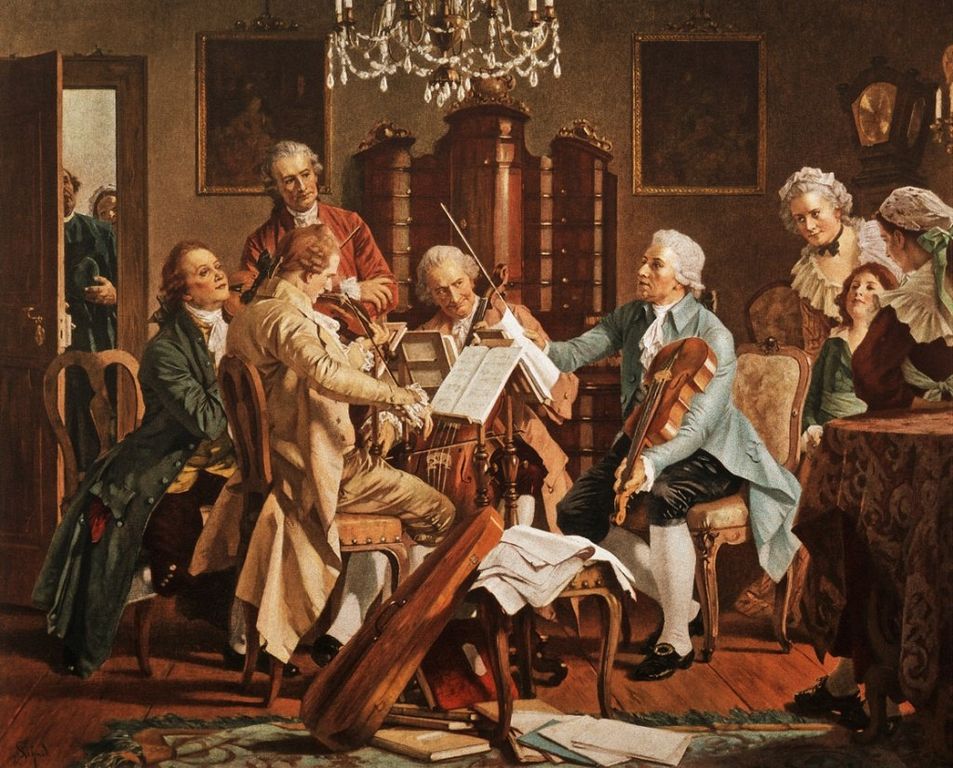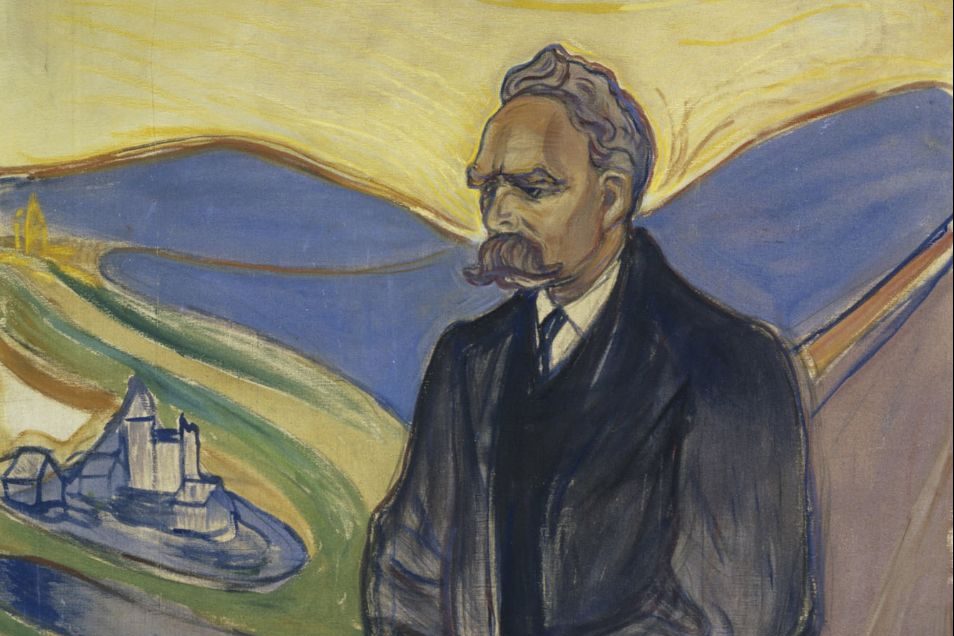10 of the greatest classical composers of all time
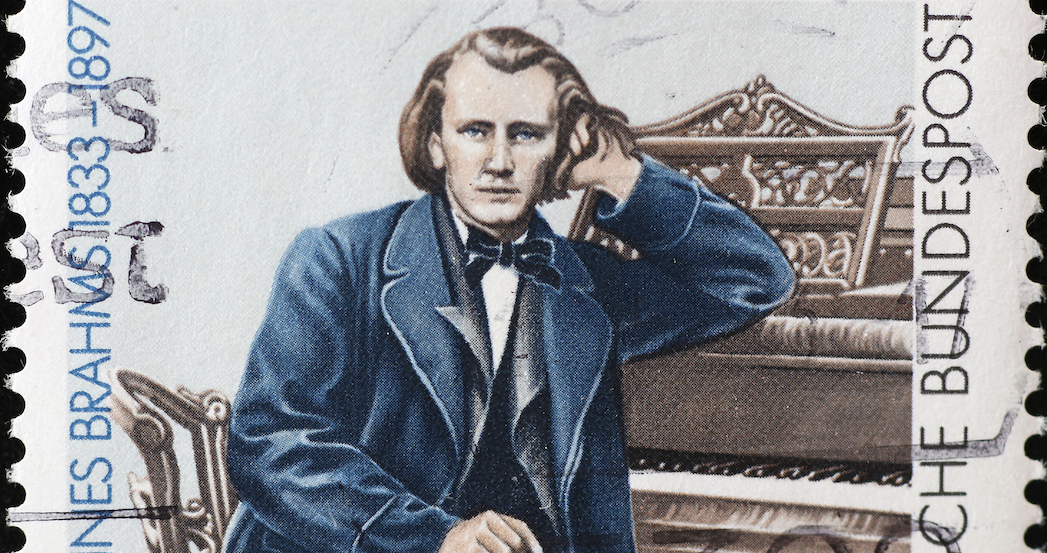
- If music has the power to directly embody the human experience, as the philosopher Arthur Schopenhauer once claimed, classical music is arguably the best-suited genre to do so.
- Thousands of talented composers have contributed to the classical canon over the past few centuries.
- These are the best of the best, according to various authoritative sources, from music history blogs to BBC Music Magazine.
Like Greek sculptures or Renaissance paintings, classical music has stood the test of time. Compositions that were written several centuries ago are being played at an equal if not greater frequency today than when they were first performed. The most famous composers — Mozart, Bach, and Beethoven — have acquired an almost ubiquitous presence in the world; even if you know next to nothing about these people, you certainly have heard their music.
To figure out what makes classical music so alluring, you first have to define what it is. As the composer and music educator Angus Davison points out in a blog post, many of the qualities and characteristics we tend to associate with classical music don’t really hold up when you compare one composer to another. Some say it’s all about rhythm and harmony, but in this regard Mozart has more in common with modern pop music than his own contemporaries.
Others prefer to focus on the instrumentation. Classical orchestras mostly consist of old-school instruments like pianos, cellos, violins, trumpets, and tubas. However, these were just restrictions of the times in which the musicians lived, not the style in which they worked; the living composer Steve Reich, for example, incorporates electric guitars and other electronic sounds into his music, which is still recognized as unmistakably classical by listeners.
“What all classical music has in common,” Davison concludes, “is something intangible, more an essence than anything else: a set of values.” These values are “excellence” and “inquiry.” Excellence, because classical composers display unparalleled technique. Inquiry, because they know — as Arthur Schopenhauer once said — that music has the potential to be a direct embodiment of the human experience. When they compose, their highest aim is to realize that potential.
Hundreds of musicians have managed to do so with great success. Below, readers will find an overview of the 10 greatest classical composers of all time. This is by no means a definitive ranking. Rather, it is a distillation of various internet lists drawn up by authoritative sources such as music blogs and radio stations, not to mention publications like The New York Times and BBC Music Magazine, which polled 174 of the world’s leading composers.
Rankings are inherently appealing, but they can also be contentious. As the biopic Amadeus illustrated so successfully, our justified but admittedly overbearing obsession with geniuses like Mozart has diverted attention away from other, equally interesting musicians, like the child prodigy’s ill-fated rival Antonio Salieri, or Saint Hildegard, a medieval abbess and polymath known for her sacred monophonies. They do not appear on this list, but deserve a listen just the same.
10. Johannes Brahms
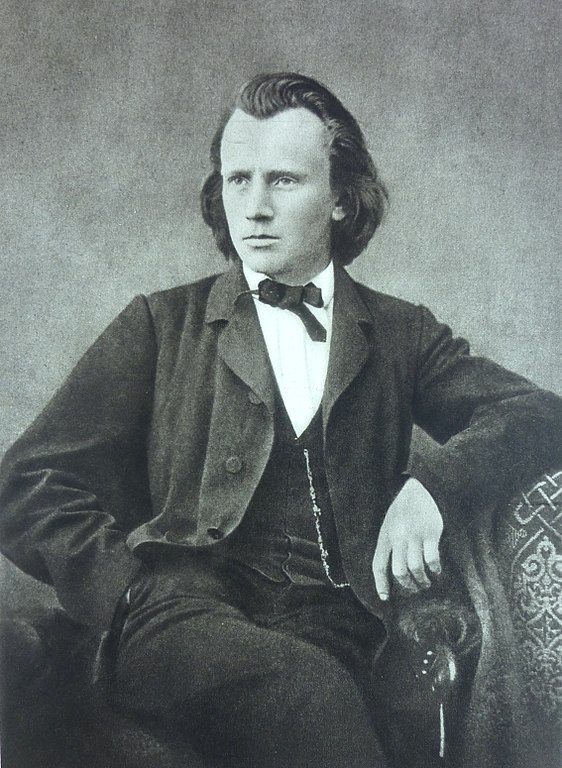
Brahms is routinely featured on concert programs. Because of this, the technicality of his compositions are often taken for granted, while their revolutionary aspects tend to go ignored. Listeners like to refer to his music as academic, but it could also be deeply personal. According to biographer Karl Geiringer, Brahms’ String Sextet No. 2 can be read as a commemoration of his engagement to Agathe von Siebold, which Brahms broke off due to his own insecurities.
“The musical politicians of our day call Brahms a reactionary,” the musicologist Alfred Einstein explained in his book, Music in the Romantic Era. “Others say that Brahms demonstrates practically that in the Classical forms something new can still be said. Not still, but always—so long as our music remains, this will be the situation. For these forms are derived from the very inner nature of this music, and in their outlines could not have been more perfectly conceived.”
9. Richard Wagner
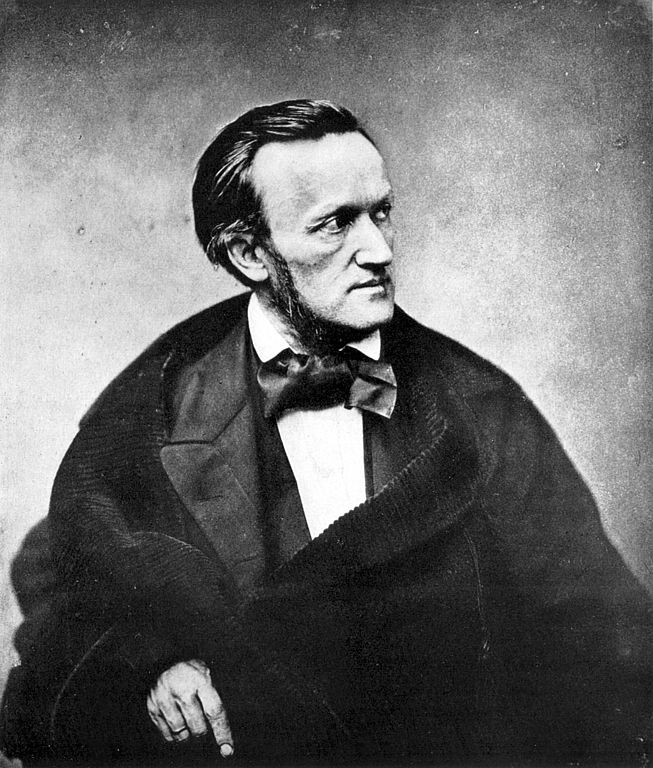
The German composer Richard Wagner (1813-1883) was fascinated by myths and legends. His operas were designed to capture the epic scale and larger-than-life spirit of the stories they were based on. To do this, Wagner increased both the size of his orchestras as well as the length of their performances. His magnum opus, The Ring of the Nibelung, is staged over the course of four separate evenings, making for a combined length of 16 hours.
Wagner invented and popularized the notion of gesamtkunstwerk. Sometimes translated as “synthesis of the arts,” a gesamtkunstwerk is an artwork in which multiple mediums combine to produce a greater whole with a singular effect. To that end, Wagner’s opera music used leitmotifs: melodic ideas associated with particular characters or objects. This way, both the music and the writing serve a narrative function.
Outside of the music world, Wagner is best known for the adoration he received from German dictator Adolf Hitler, and numerous scholars have drawn parallels between the two men’s obsession with organization and harmony. Still the critical consensus is that Wagner’s creative genius escapes its latent totalitarian shadow. “In Wagner,” wrote Martin Kettle for The Guardian, “the ideas are carried on and in the music, which is inseparable from the drama.”
8. Franz Schubert
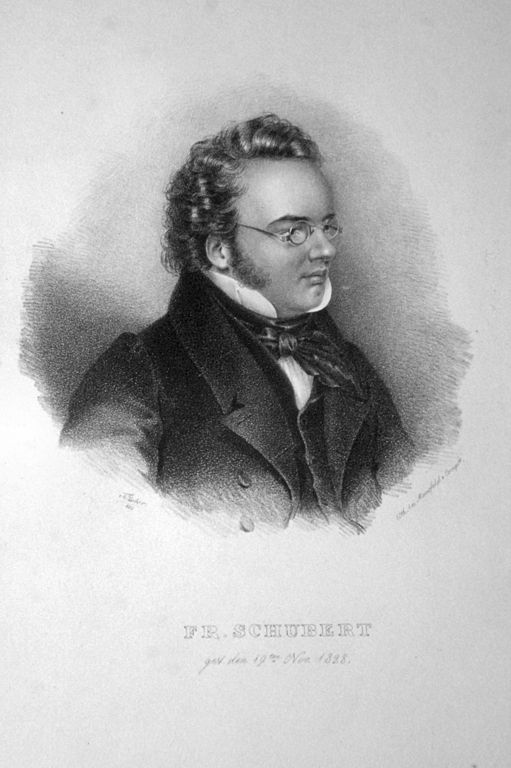
Franz Schubert was born in Vienna in 1797 and died in 1828 at the age of 31 after contracting typhoid fever or possibly syphilis. The fact that he makes it this high on the list in spite of his early death is a testament to his talent as a composer. Schubert was a natural, perhaps even more so than Mozart, composing technically complex and artistically mature melodies at an age when most other musicians are only just starting to grasp the basics of music theory.
Schubert, exclaimed the classical radio host Gregg Whiteside, “was the first, and the greatest songwriter in history. His 615 songs represent a flow of unaffected melody, and dark undercurrents of the soul, without compare in the history of music.” Perhaps the greatest compliment came from Beethoven, who, in his later years when struck by fatal illness, said that “Schubert possesses the divine fire” and that he had his “soul.”
7. Pyotr Ilyich Tchaikovsky
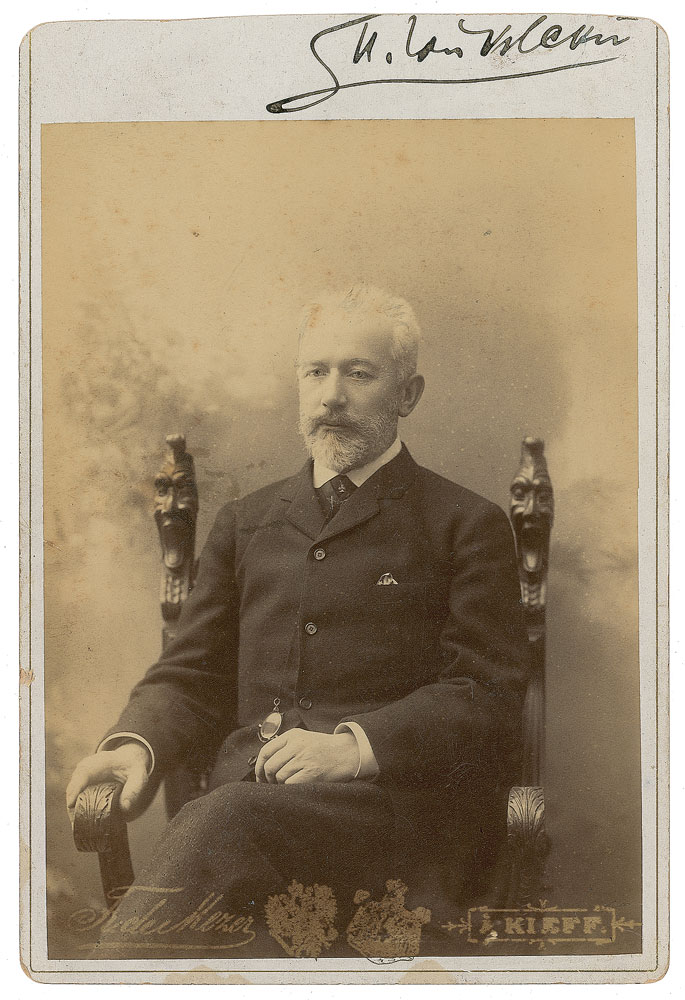
The Russian composer Pyotr Ilyich Tchaikovsky (1840-1893) garnered international renown for the ballets Swan Lake and The Nutcracker. In smaller circles, he is also remembered for the opera Eugene Onegin, based on Alexander Pushkin’s novel of the same name. Tchaikovsky found success in spite of the fact that Russia had no system of music education. When he entered the Saint Petersburg Conservatory in the early 1860s, the institution had only just opened its doors.
Tchaikovsky’s music resembles his personality: both were delicate and highly sensitive. Feeling unexpected by other Russians for his interest in music and closeted homosexuality, the composer looked westward for inspiration. Caught between two different worlds, his music was criticized from both sides, and for a large portion of his career he avoided conducting orchestras out of literal fear that his head might fall off his own body during performances.
Knowledge of Tchaikovsky’s internal suffering adds depth to his already appealing music. After struggling to find work, the composer eventually encountered a devoted patroness in the form of Russian businesswoman Nadezhda Filaretovna von Meck. Despite paying Tchaikovsky royally, the two never met in the flesh. “You are afraid that you will not find in me those ideal qualities that your imagination has attributed to me,” the composer wrote in a letter, “and you are quite right.”
6. Claude Debussy
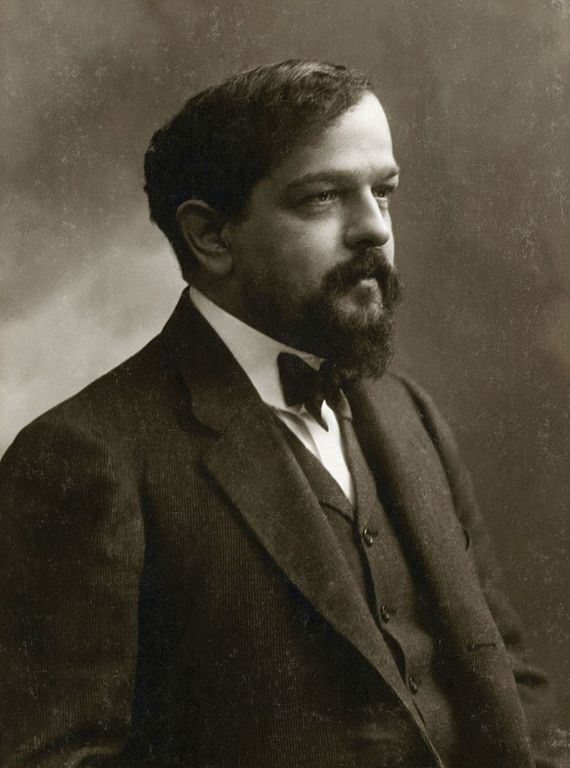
Many regard French composer Claude Debussy (1862-1918) as the first and most influential Impressionist composer. Debussy himself disliked the term and insisted that his work followed no rules other than his own “plaisir” or pleasure. Still, one can identify multiple similarities between his compositions and the visual arts movements to which they are habitually compared, including its spontaneity and frequent use of atonality.
Compared to the methodical and highly polished compositions of Brahms or Wagner, Debussy’s music seems to lack shape and form. The compositions sound almost unfinished, like loose sketches that have been partially erased. The notes are assembled not on sheets, but in the ears and brains of the listeners. The composer’s use of “harmony and texture,” piano teacher Stephanie Mccallum explains in The Conversation, “recalls the light and colour of Impressionist painting.”
5. Frédéric Chopin

The legacy of Polish composer Frédéric Chopin (1810-1849) is impressive for several reasons. In the 30 years that Chopin spent producing world-class music, he only performed publicly on 30 occasions. On top of that, he mostly restricted himself to exclusively the piano. His singular devotion to the keyboard paid off. More than any other musician, Chopin has demonstrated the sheer variety of feelings this instrument can evoke.
According to NPR journalist Ted Libbey, “Chopin banished the ordinary from his music and opened the door to an emotional ambiguity that continues to intrigue listeners — one whose communication requires subtleties of execution that generations of pianists have labored devotedly to achieve. The luminous textures and haunting melodies he used to express his thoughts added to the piano’s sound and range of color shadings that no one before him had imagined were there.”
4. Igor Stravinsky
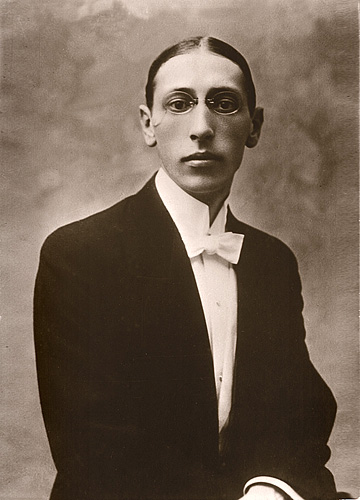
Igor Stravinsky lived from 1882 to 1971. Born in Saint Petersburg, he later emigrated to France followed by the United States. His father, a bass singer at the Mariinsky Theater, expected him to become a civil servant. Stravinsky briefly enrolled in law school, only to end up pursuing a career in music instead. He went on to compose ballets and operas, and went down in history as one of the most influential musicians of the 20th century.
Stravinsky’s greatest strength was perhaps his versatility. In his early years, he explored many different styles. He had a knack for developing permutations of his motifs, adding or subtracting notes regardless of changes in meter. “As a composer he’s there in my life,” Mark-Anthony Turnage remarked in BBC Music Magazine’s poll, which placed Stravinsky at the number 2 spot, “looming over me but never an overwhelming presence; always cheeky and encouraging.”
Part of the same poll, Edward Gregson added that Stravisnky’s The Rite of Spring “has proved to be the true birth of modernism (…) rather like Picasso, Stravinsky constantly reinvented himself and his musical language, though his style remained constant – his 12-tone music sounds as Stravinskian as any of his earlier work. There are not many composers since who have not been influenced by his creative imagination. He is the godfather of 20th-century music.”
3. Wolfgang Amadeus Mozart
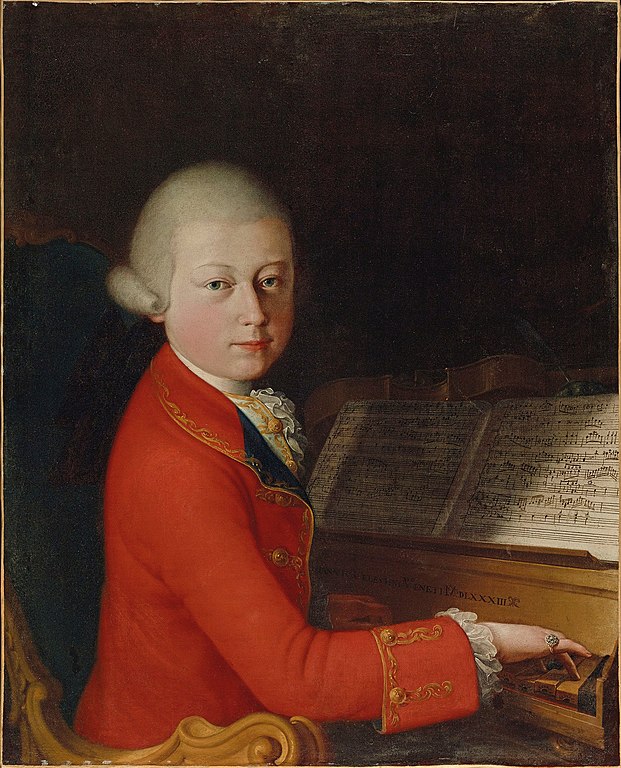
Born into a musical family in Salzburg, Wolfgang Amadeus Mozart (1756-1791) received two resources that come in handy when you want to become a great musician: access to extensive musical training, and natural talent. Both he received from his parents, music instructor Leopold Mozart and his wife Anna Maria. A child prodigy, Mozart could read and write music before he turned five, producing work on par with that of adult experts.
Those who attribute Mozart’s genius to the accident of his birth fail to recognize that he was a prodigious student, studying his predecessors with diligence and composing as many as 600 pieces during his short life. The extent of Mozart’s talent is best explained through the praise he received from other titans. On his deathbed, Chopin asked to “play Mozart in memory of me.” Composer Aaron Copland went as far as saying he “tapped the source from which all music flows.”
2. Ludwig van Beethoven

The German composer Ludwig van Beethoven (1770-1827) is known not just for the music he created but also for the medical condition that inflicted and inspired him. Beethoven started to go deaf around 1800. Where some forms of deafness affect the quality of sound, causing some noises to become indistinguishable or distorted, Beethoven’s troubles were related purely to volume: as long as the music was loud enough, he could still hear it.
This helps explain the bombastic impression that characterizes Beethoven’s later work. The composer, one blog post explains, bridged the gap between the Classical and Romantic periods. Where classical musicians composed music that had to be produced and experienced in a vacuum, romantic music sought to touch on something other than the sound. It had to evoke moods and convey stories. It had to channel distinctly human emotions.
Beethoven’s music, the same blog post goes on to state, “is less intellectually (or at least, mathematically) clever than Bach and less musically perfect than Mozart but perhaps when contemplating years alone with nothing but a gramophone to keep you company, one turns to music that stirs the soul and which is filled with passion to tear you away from a land of palm trees and sand to the countryside of Austria and the moonlight on Lake Lucerne.”
1. Johann Sebastian Bach
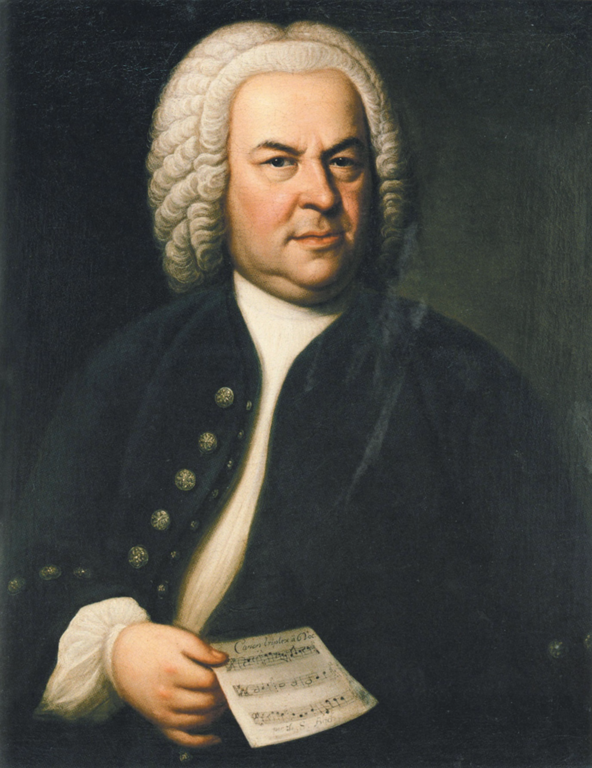
Though a handful of internet listings placed Mozart and Beethoven at the top, the vast majority acknowledged Johann Sebastian Bach as the undisputed greatest classical composer of all time. The German musician, who lived from 1685 to 1750, hailed from a family of professional musicians and spent much of his career playing for Protestant churches and royal courts in Central Germany. His expertise was chamber music: background music fit for palaces and drawing rooms.
He was not only a meticulous composer, but a tireless student of music. “Bach might have been viewed as old-fashioned not long after his death,” Deborah LeFer wrote in an open letter for Slate magazine, “but since Mendelssohn’s revival, we see that Bach can be played on any instrument, and his melodies are still so culturally relevant that contemporary musicians have reused them several times throughout the centuries since his death.”
